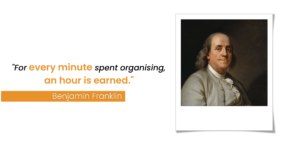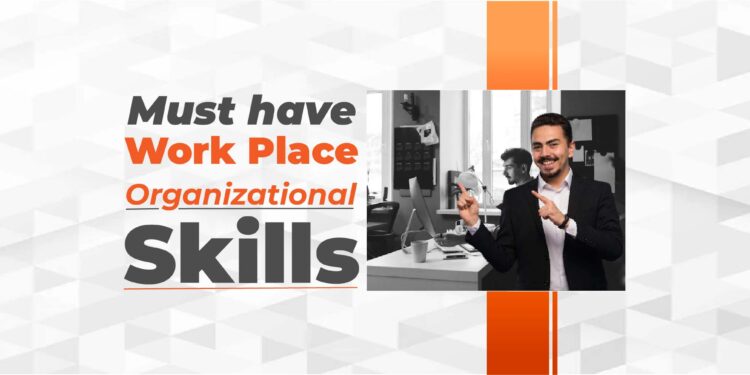What are Organizational Skills?
Ever look at job advertisements that say “Looking for someone with strong organizational skills” and wondered what they mean?
Organizational skills are the most essential proficiencies for an employee at a workplace that let you stay focused and utilize your strength, time, and mental capacity to effectively achieve the desired outcome of different tasks. These skills not only allow you to catch up with deadlines but also assist in minimizing workplace stress and carrying out your duties and responsibilities more efficiently.
In this article, we’ll look at what organizational skills are, discuss the different types of organizational skills, and share tips and suggestions to bring improvements to your role in the workplace.

The stale definition of Organizational Skills is that they are a set of techniques for an individual to simplify future-oriented learning, problem-solving, and completion of tasks. However, this may seem a bit far-fetched, so simply put, organizational ability is all about establishing a proper order for all the things in front of you. For businesses, organizational planning helps achieve goals and groom personal as well as professional portrait of a person.
Types of Organizational Skills
Here we’ll discuss different types of organizational skills you need to master to become the best at your job.
Time management
It is the intelligent use of your time so you can use it for more value. Value such as increase in productivity, less worry and more space to do other stuff in your remaining time. If you think carefully of it, time management is one of the exceptional organizational skills. It’s not only about delivering your work on time but it also translates into less procrastination and anxiety.
Communication
When you work with several people each day, relaying information from one point to the other is fundamental. An effective communication among workers proves useful to make sure everyone has a clear idea of what’s going on. This becomes an organizational skill because it helps in sending and receiving of information amongst interrelated people within the workplace so they can achieve common contextual goals.
Setting goals
Setting goals is a type of planning which is useful in allowing yourself to understand the end outcome which you’re chasing and visualize how you’re going to accomplish it. With a clarity about your goal, you can start moving towards it with sheer focus.
Delegation
It is always better to aim for success at a fewer tasks than failing at many. So, distributing your work into smaller sets and delegating it can assure that you can focus on what you can complete on your own and fast. The rest can be managed through combined effort of others.
Self-motivation
Motivation is intrinsic for most people and comes handy for dealing with day-to-day tasks which may tire you out because of the mundane routine it creates. Tapping into the internal stream of motivation will keep you energized and ready to take up and finish your work efficiently. Identify what interests you at work and create a work-reward relationship to the tasks you’re taking up.
Decision-making
Even the best employees get shaky feet when it comes to making important decisions. Probably the greatest strength to have for your self organization skills, is the ability to make effective, powerful decisions. An employee with outstanding organizational skills would not only have a logical approach to solving problems but predicting future outcomes while making decisions.
Strategic planning
Take out a calendar, and write down your most important tasks in the upcoming weeks. Use a focus time and schedule huddles for those tasks days in advance. Staying ahead of the curve and planning your resources accordingly can help meet deadlines and not make the workload seem too heavy to pull.
Analytical thinking
Most people who are good at analytical thinking can isolate their practical self from their emotional self, which proves instrumental for their success. Smaller skill sets like data analysis, research and problem-solving are pillars to this thinking ability.
Attention to detail
Individuals who demonstrate organizational skills have strong attention to detail and can organize themselves to find patterns and solutions that save them from putting in any counterproductive effort in the future.
“Start by doing what’s necessary; then do what’s possible; and suddenly you are doing the impossible.” – Francis of Assisi
We’ve learned that in order to have a successful professional life, you can’t get by with just your qualifications but need an extra set of skills called Organizational skills. Time Management, Communication, Setting Goals, Delegation, Self-Motivation, Decision-Making, Strategic Planning, Analytical Thinking and Attention to Detail are the must have organizational skills if you want to succeed at the workplace.
Related Reading: Essential Skills for a first time Manager.
Want to make your skills stand out? Enroll now in our First Time Manager Bootcamp.
















Nice respond in return of this matter with real arguments and telling the whole
thing concerning that.